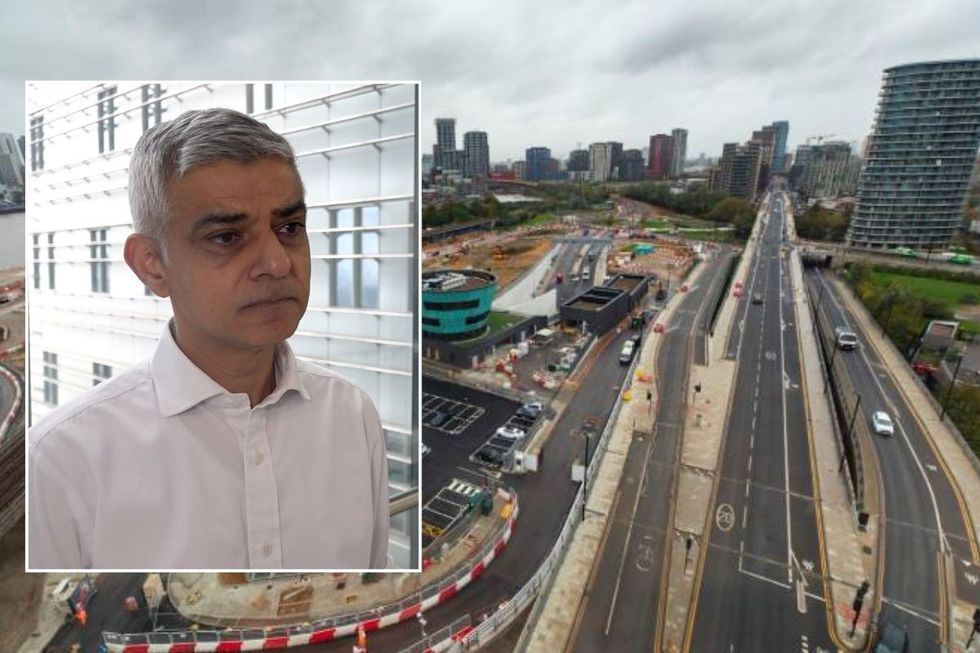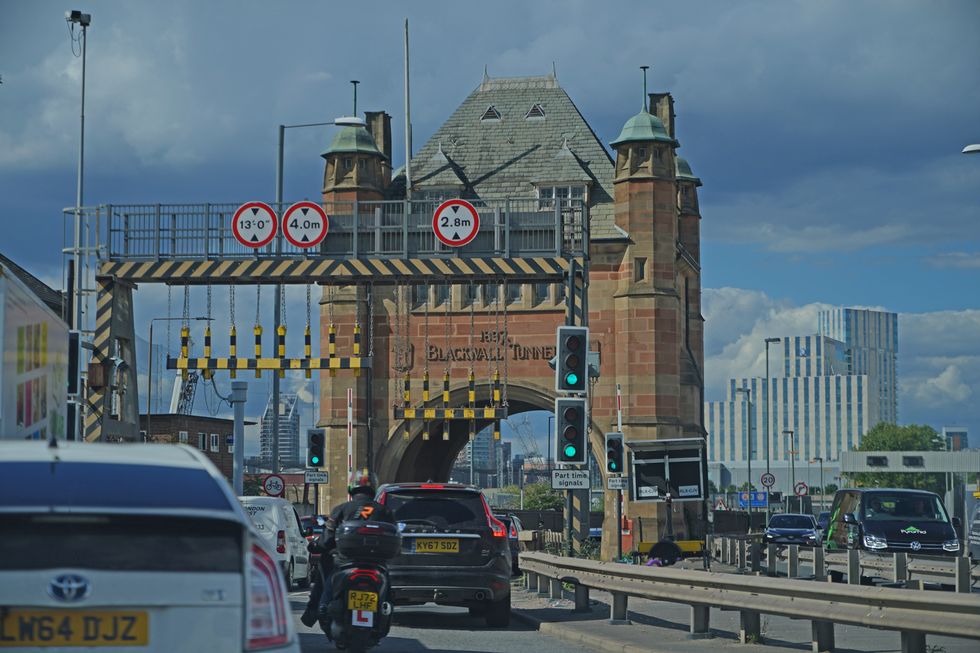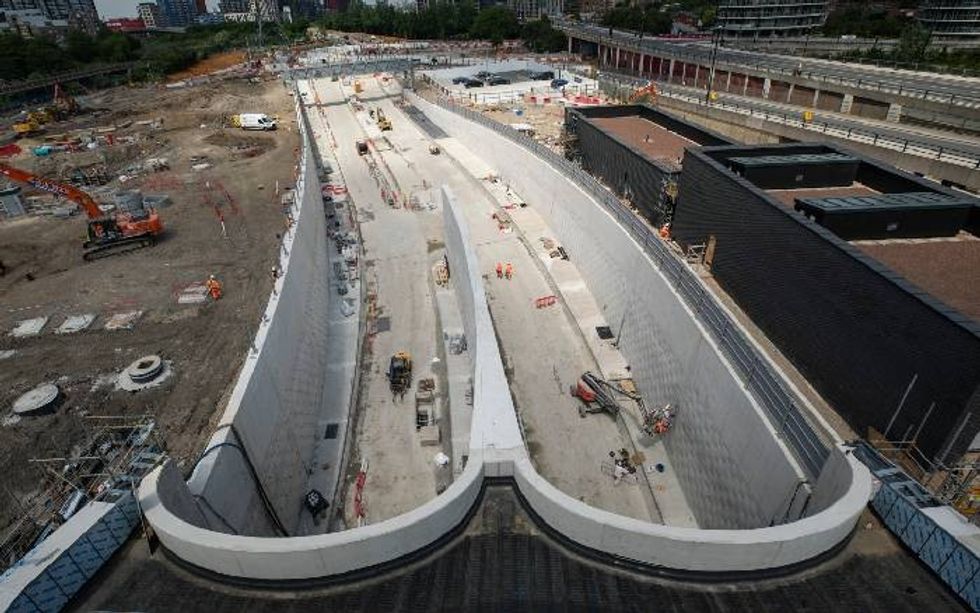Sadiq Khan’s Transport for London (TfL) has pocketed more than £40million from motorists using the Blackwall and Silvertown tunnels in just five months since tolls were introduced.
Nearly half of the money raised came not from standard toll charges but from penalty fines, according to reports.
Figures released under a Freedom of Information request reveal TfL collected £20.7million from regular tolls between April and August, while £19.7million poured in from penalty charge notices (PCNs).
This equated to an almost 50–50 split, raising serious questions about whether the system is confusing drivers or unfairly punishing ordinary Londoners.
The new tolls, which cost car drivers up to £4 per journey at peak times, were introduced on April 7 to coincide with the opening of the £2.2billion Silvertown Tunnel.
But the numbers have shown just how many motorists have been caught off guard. In less than half a year, TfL issued a staggering 312,142 PCNs.
Drivers were slapped with fines of £180, reduced to £90 if paid promptly, sums that add up fast for commuters already struggling with the cost of living.
More than 52,000 drivers challenged their fines, with around 14,000 appeals accepted.
These included motorists who believed they had already registered for Auto Pay, as well as Blue Badge holders who assumed they were automatically exempt.

But the sheer volume of disputes has pointed to a system that many drivers don’t fully understand, or one that TfL has failed to communicate clearly.
Before tolls were introduced, around 100,000 vehicles crossed the Blackwall Tunnel every weekday.
Since April, that figure has dropped by 12 per cent. Now, just 88,000 vehicles use both tunnels combined, with the Silvertown Tunnel carrying about 20,000 of those.
This means that thousands of vehicles have simply disappeared from the crossings, with many found to be diverting to free alternatives such as the Woolwich Ferry.
TfL admitted that traffic at alternative crossings has risen sharply, undermining claims that the tolling system would ease congestion.

LATEST DEVELOPMENTS:
- Motorists face £300 penalty and driving ban for road offences as police target rulebreakers
- Electric car charging operators quitting certain UK markets forces prices down for motorists
- Drivers at risk of £1,000 fine for common driving practice that breaks Highway Code rules
Despite the backlash, TfL has insisted the scheme is working, with the authority detailing a 70 per cent reduction in morning peak journey times northbound on the A102 approach.
Meanwhile, unplanned closures at the Blackwall Tunnel were reportedly down 39 per cent, due to larger vehicles now opting for the Silvertown Tunnel.
Bus services have also seen a big boost, with passenger numbers reportedly up 160 per cent across the two tunnels, including 7,000 extra cross-river journeys each day.
Deputy Mayor for Transport Seb Dance said the tunnels are already making a “real difference” by reducing traffic build-ups.

He said: “Easing congestion and keeping London moving is vital for our city to thrive, so it’s encouraging that initial data from TfL shows that the new Silvertown Tunnel is helping to reduce the build-up of traffic around the Blackwall Tunnel.”
But critics have argued that the figures mask a more troubling reality. For thousands of Londoners, especially those who rely on their cars for work, school runs, or hospital visits, the tolls represent yet another financial hit.
One local driver told GB News: “They call it reducing congestion, but really it’s just making it unaffordable for ordinary people. If you can’t pay, you get fined. It feels like a money-making trap.”
Our Standards:
The GB News Editorial Charter







Follow